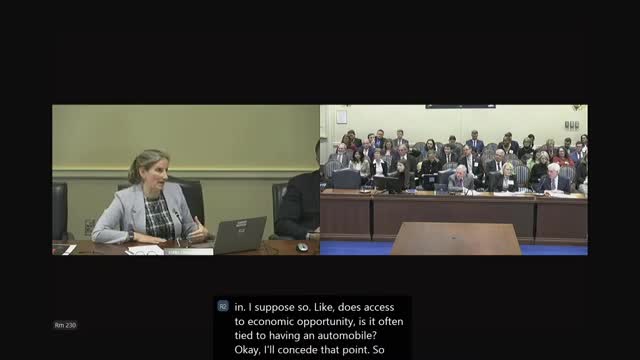Bill would require 120-day notice before sale of local news outlets to give communities time to organize buyouts
Get AI-powered insights, summaries, and transcripts
Subscribe
Summary
House Bill 51 would require sellers of local news organizations to provide 120 days’ written notice to employees, local government, and Maryland nonprofits before a sale to an out-of-state buyer, with supporters saying notice could preserve locally owned newsrooms and critics urging clarity on timing and implementation.
House Bill 51, sponsored by Delegate Mary Lehman, would require a 120-day written notice period before the sale of a local news organization to an out-of-state buyer. The measure applies to print, digital, and hybrid outlets and sets criteria for a qualifying “local news organization” to avoid so-called ghost outlets with no local reporting.
Lehman told the Economic Matters Committee the bill is modeled on Illinois legislation and was intended to keep local newsrooms locally owned and provide communities time to prepare acquisition plans or nonprofit bids. “Local news is an important source of information about local government, about public safety, neighborhood issues, schools, and much more,” Lehman said, citing research that more than half of U.S. counties have one or no local news outlet and that many Maryland outlets are small and financially vulnerable.
University of Maryland Philip Merrill College of Journalism Dean Rafael Laurenti testified in support, saying the college’s Local News Network study showed coverage gaps across Maryland and argued that advance notice could allow local investors, foundations or employees time to present credible offers. John Shloyce, president of the News Guild-CWA, urged the committee to give journalists “critical time” to organize local bids; Sarah Walton of the Baltimore Banner described nonprofit models that have sustained local reporting.
Steve Waldman of the Rebuild Local News Coalition told lawmakers the measure is modest and would not block sales to hedge funds or require a right of first refusal; instead, he said, the 120-day window gives communities a “fighting chance” to assemble offers or nonprofit plans. Joe Murchison, a longtime Maryland editor who testified by Zoom, described several local papers that were closed after successive out-of-state ownership changes.
Witnesses from the news business and press associations said they share the goal of preserving local news but raised concerns about implementation details. Rebecca Snyder of the Maryland Delaware DC Press Association said the Illinois law included additional supports (scholarships, journalism funding) and warned the notice period could harm a very small operation that needs to close quickly. Committee members asked whether colleges or universities could be purchasers and whether 120 days is sufficient time for employees or local buyers to assemble financing; sponsors said the 120-day period was drawn from Illinois and defended it as a balance between giving communities time and avoiding undue drag on transactions.
The committee did not take formal action at the hearing. Supporters asked for a favorable report and said they would work with stakeholders to clarify language, timing, and enforcement mechanisms.
